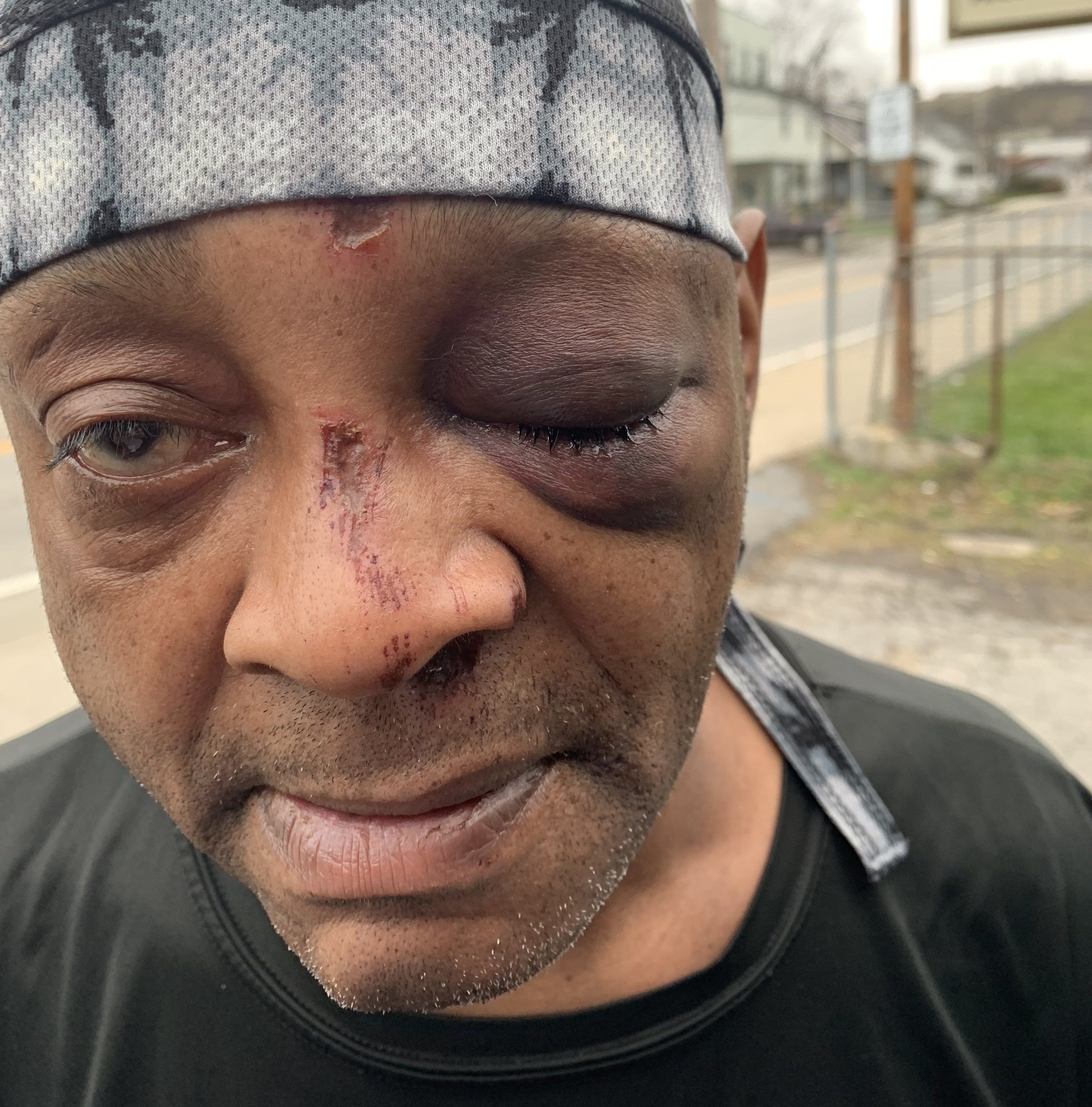WESTOVER, W.Va. — Defense attorneys for a black man facing a series of charges claim he suffered a broken jaw and three missing teeth following an abusive encounter with Westover Police during the wee hours of his New Year’s Day arrest.
Andre Howton, 54, is charged with battery on an officer, disorderly conduct, obstructing an officer and disturbing the peace. His attorney, Beth Lebow of Umina Legal, took the unusual approach of requesting a jury trial in Westover municipal court, the first in recent memory.
Lebow claims an officer pulled Howton from his home, used excessive force and violated his constitutional rights.
The defense has released body cam footage of the incident in which Howton was dragged to the ground and struck as an officer tried to administer handcuffs.
WATCH: Westover police bodycam video of Andre Howton’s arrest. [Warning: Graphic language]
Westover Police Chief Rick Panico denies excessive force was used, calling it a case of self-defense for the officers.
“We did a use-of-force report on it, and we checked it out and ran it through and we didn’t find anything that was outside the normal bounds,” Panico said. “We respond with an appropriate level of force, when the officer gets involved in a situation where it becomes self-defense. When it becomes self-defense and there is no rules of the road, so to speak. We have to defend ourselves to control the threat. This officer during this encounter stated he was basically defending himself in the process of making a lawful arrest.”
Panico said an incident review led the department to discuss ways to better manage future situations. A third officer would have been useful on the scene, for example.
The Jan. 1 call to Howton’s apartment originated as a domestic violence complaint, Panico said.
In a 22-minute video from police bodycam, officers Zachary Fecsko and Aaron Dalton — both of whom are white — are seen responding to an apartment at 404 Dunkard Ave. Howton asked the officers to remove a woman he called a “crackhead” because she wanted to get high while he just wanted to drink.
Eventually, the woman was escorted peacefully from Howton’s apartment and into a police car. But when Howton stepped onto the porch and yelled insults at the woman, an officer repeatedly ordered him to stop yelling and go inside. Howton stepped inside his doorway but shouted toward Fecsko, “You’re mad at me because she’s smoking crack?”
That’s when the officer grabbed Howton out of the doorway, leading to a struggle in which the defendant was beaten. A neighbor intervened and was subdued to the ground by Dalton.
“That’s when you see (Fecsko) reach into Andre’s house — which that in and of itself, there was no reason for them to utilize any force or pull him out,” attorney Ryan Umina said. “For whatever reason, he gets (Howton) turned over and he feels the need to beat him in the face to the point where he has several broken bones and three teeth knocked out.”
While Lebow and Umina believe removing Howton from his home was a Fourth Amendment violation of Howton’s rights. Panico disagreed.
“If a police officer sees a misdemeanor or felony in his presence he can take actions immediately to basically take this person into custody to answer for this crime,” Panico said.
Panico pointed out Fecsko is the officer who de-escalated a situation months ago by tasering a gun-wielding suspect instead of using deadly force.
In August, Howton’s case is scheduled to go before a jury. Panico, Lebow and a police secretary said they can’t remember Westover ever staging a jury trial. Panico credits the city court judges’ fair treatment of its citizens as a reason why.
Lebow said the first time she met Howton he revealed pictures of his bruised face following that police encounter. He reportedly told her, “I can’t beat this. They’re the cops, I’m a black man. I know I can’t win.”
Said Lebow: “It honestly shattered me a little bit because I knew he might be right.”
Lebow requested the footage from Dalton’s bodycam and “was appalled at the video.”
Lebow said Howton’s response — paired against the physicality and language used by officers in the video — makes her confident Howton did not commit a crime.
Panico said this case exemplifies the importance of respecting requests from law enforcement. Better to lodge a complaint with the police department, he said, rather than confront an officer’s command at the scene.
Umina said his law firm decided to release the video because Howton’s story deserves public awareness.
“This is not OK,” Umina said. “Reaching into someone’s home, pulling them out of it and then beating them to the point where their face is broken, their teeth are knocked out and then charging them with a crime, that’s not OK.”




